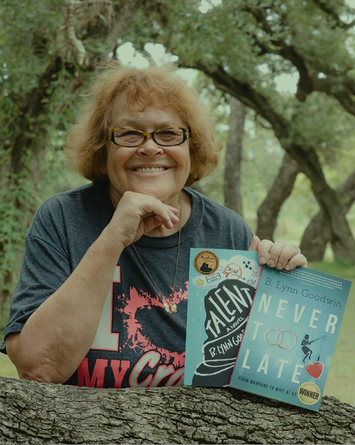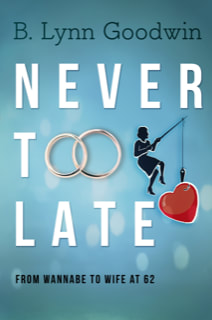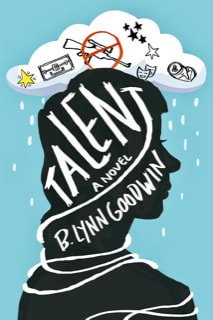Smart Steps
Women business leaders and entrepreneurs from various industries share their tips and advice in a "quick read format" on a variety topics.
Topic: Improving Your Writing by Finding Joy in Self-Editing
September 2023
|
B. Lynn Goodwin
Founder of Writer Advice Photo Credit: Marsha Gibson |
Writer and editor B. Lynn Goodwin owns Writer Advice. She has written two award-winning books, a YA novel called Talent and a memoir titled Never Too Late: From Wannabe to Wife at 62. Her new YA, Disrupted, will be published in 2023.
She’s written journaling prompts, flash pieces, author interviews, book reviews, and short articles. Flash pieces are published in Flashquake, Nebo, Cabinet of Heed, Murmur of Words, 100-Word Stories, Ariel’s Dream, and Writing in a Woman’s Voice. A reviewer and teacher at Story Circle Network, she also runs an editing and manuscript consultation service through Writer Advice. "How do you know what’s working and what isn’t? One way is to have a trusted writing partner read your work to you. Listen to her voice. If she hesitates, she may be identifying a problem you didn’t see. If she asks questions, something is not clear." ~ B. Lynn Goodwin |
When you love every word you’ve written, editing can be hard. If you’ve taught English as I have, the grammar, spelling, and punctuation part may be easy. If not, there are great programs out there to help. Google “Grammar Help” and select any program with a free trial so you can see if it works for you.
Warning: Use AI programs at your own risk. I don’t recommend them because their voice isn’t yours.
What about editing beyond mechanics? How do you know what’s working and what isn’t? One way is to have a trusted writing partner read your work to you. Listen to her voice. If she hesitates, she may be identifying a problem you didn’t see. If she asks questions, something is not clear.
Before you do that, though, you may want to use these 20 questions which will give you perspective on any draft. Tired of your own opinions? Try answering as your protagonist and discover how her voice is different from yours.
- What does the main character want?
- What can she do to get it?
- What is in his way?
- Does each character have a unique voice or do they all sound about the same?
- What message am I trying to convey in this story?
- What is the action?
- What conflicts exist?
- Does the tension rise? How much? Why does it matter?
- When one conflict is resolved, does another one come up?
- What makes the conflicts matter to the reader?
- Who will my audience be?
- What are they expecting to find in this story?
- How can I entertain them?
- How can I surprise them?
- What is unique about this story?
- What is universal about this story?
- What can I delete to improve the flow?
- What can I add to improve the imagery?
- How can I get perspective on this story?
- How can I answer these questions without getting feedback from others?
Finally, before you submit your work, you might want a professional editor to look it over. As an editor, I find I can be more helpful to clients who tell me what they want to know. Ask questions about character, plot, pace, tone, conflict, setting, or whatever is troubling you. Many editors offer free samples of their work to see if the two of you are a fit. I am one of them. The better your self-edit, the deeper a professional will go in her assessment of your work. Give yourself your best chance at being accepted and published with careful self-editing.









